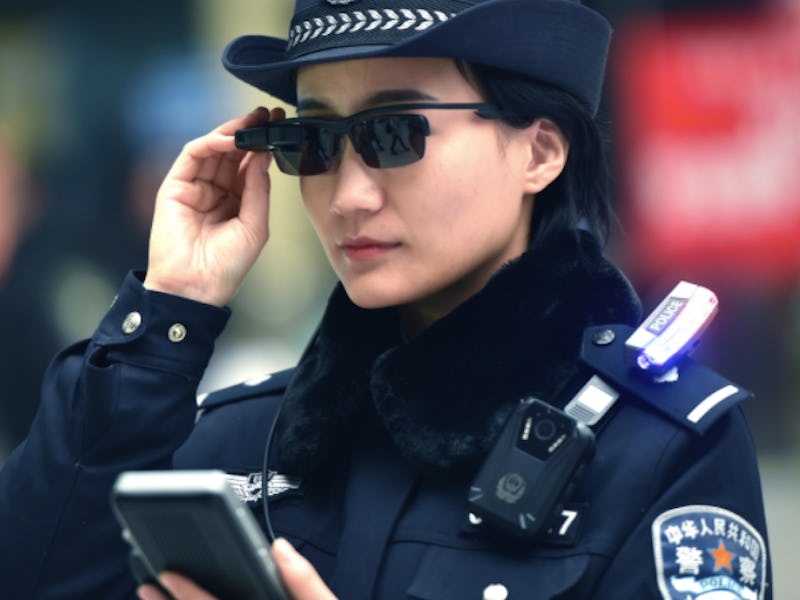China Deploys 'Mission Impossible' Tech: Facial Recognition Glasses
In China, security trumps privacy.

A few weeks before the start of Chinese Lunar New Year festivities, during which the Chinese will make an estimated 3 billion trips, China Daily published a story on a new high-tech law enforcement tool: facial recognition eyeglasses.
Apparently, these eyeglasses have already been tested and proven useful. In Zhengzhou’s East Railway Station in central Henan Province, they helped local police capture seven people wanted in connection to major criminal cases, and a further 26 traveling on false documents.
The timing of the announcement coincides with China’s biggest holiday — and reason for travel. During the annual Chinese New Year festivities, which are like America’s Thanksgiving, Christmas, and New Years’ Eve holidays all wrapped into one, China’s public transportation hubs will be pushed to their maximum capacities, making law enforcement a key issue.
The devices were developed by Beijing-based LLVision Technology Co., which developed the facial recognition system with police departments in the provinces of Henan, Shandong, and Xinjiang.
The AI devices, as seen on LLVision's website
The devices are basically wearable video cameras that are connected to a facial recognition database. But unlike other facial recognition systems, these eyeglasses are wired directly to a small electronic device that connects to a smartphone wth an offline database. This makes the system work faster than if it were connected to the cloud.
In tests, the device is fast, able to identify individuals in a database of 10,000 faces in just 100 milliseconds though, Wu Fei, LLVision’s CEO, told the Wall Street Journal that real-life use cases might prove to be a little slower, due to “environmental noise.”
The eyeglasses are part of a growing number of tech tools, which also include a social credit system (think social media meets your credit score) and a crackdown on VPNs that allow users to access banned international websites, that China is deploying as part of its growing web of control of the Internet, and the conversations that happen on it.
As William Nee, a China researcher with Amnesty International, told the Wall Street Journal, “The potential to give individual police officers facial-recognition technology in sunglasses could eventually make China’s surveillance state all the more ubiquitous.”
Wu says that, for now, LLVision is not selling the facial recognition capabilities to individual clients due to concerns about privacy, though a video-only version of the glasses is available for 3,999 yuan ($636). Apparently, the company has sold these basic versions to clients in Africa, Europe, Japan, and the United States.